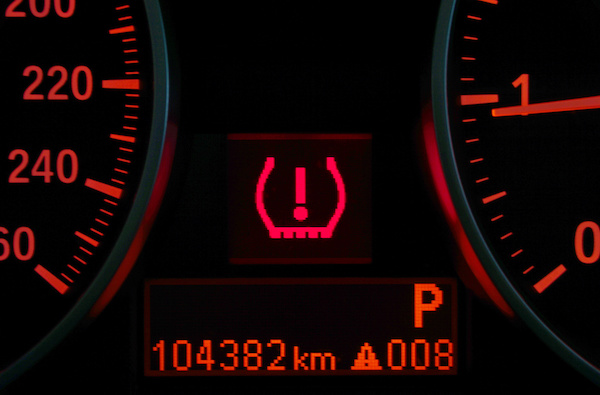Posted on 2/25/2022

A tire pressure monitoring system, or TPMS, monitors the air in your tires. It consists of sensors on each tire to calculate and send real-time information to the car's computer. Once one or more of your tires have lost over 1/4 of its recommended psi, it will trigger a TPMS warning light to come on your dashboard. On the other hand, if the TPMS light is blinking, it means that the sensors are malfunctioning. Today, we will be going over some commonly asked questions regarding the TPMS. What Can Cause the TPMS Sensor to Fail? Collisions Potholes and Curbs Sensor Battery Failure - not common as sensors are expected to last 7 to 10 years Does a TPMS Replace Manual Tire Pressure Checks? Absolutely not! Tire pressure checks are still a driver's responsibility, and they should be done manually with proper tools. It is not a replacement for regular tire pressure monitoring because the light does not come on until the tires meet the 25% threshold. Furthermore, the sensors may ina ... read more
Posted on 1/27/2022
.jpeg)
Spark plugs play a vital role in the internal combustion process, which produces power for your engine. Spark plugs ignite the combustion chamber where the fuel-air mix. Spark plugs require routine service and replacement just as the fuel filters and air filters. To achieve optimum performance, your spark plugs should be clean and there should not be any damage to the electrodes. What is a Bad or Fouled Spark Plug? Dirty or fouled spark plugs can affect the running of the engine. A bad or fouled spark plug is one that is covered with fuel, oil, and carbon. It could also be blistered because of running too hot. Driving with bad or fouled spark plugs may cause multiple problems to your engine. Symptoms of a Bad or Failing Spark Plugs Below are some of the common signs and symptoms of bad or failing spark plugs: Engine Misfire Faulty spark plugs result in an engine misfire due to incomplete burning fuel. An interrupted combustion process can significantly affect the engine perform ... read more